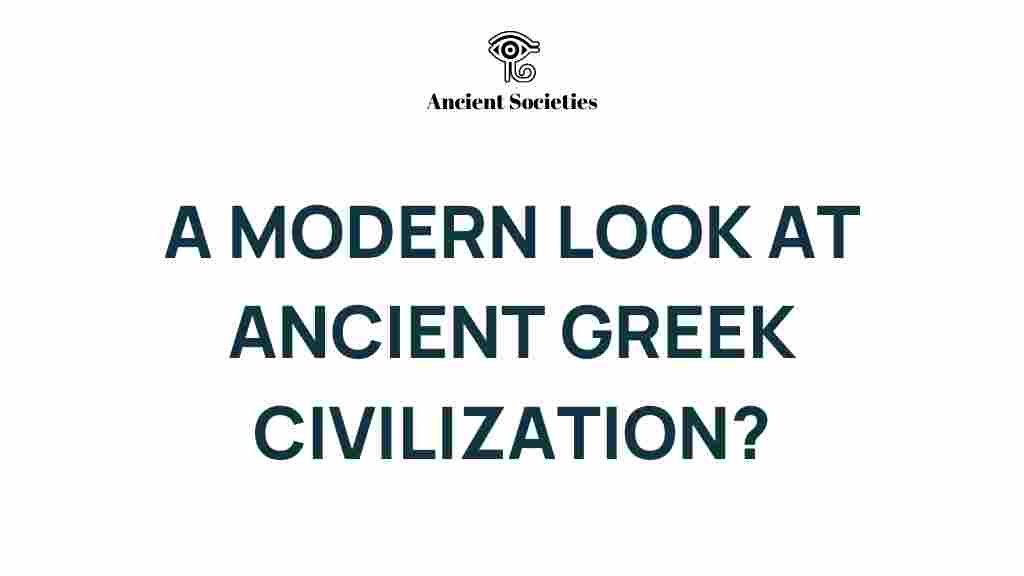Unveiling the Secrets of Ancient Greece: A Deep Dive into Civilization, Culture, and History
Ancient Greece remains one of the most fascinating and influential civilizations in human history. Its profound contributions to culture, philosophy, democracy, and art have left a lasting legacy that continues to shape modern society. This article will explore the myriad aspects of Ancient Greece, from its rich history and innovative spirit to its captivating mythology and archaeological discoveries.
The Birth of Ancient Greece
Ancient Greece emerged around the 8th century BC and flourished for several centuries, ushering in an era of remarkable achievements. The civilization was not a single entity but a collection of city-states, each with its unique governance, culture, and traditions. Key city-states included:
- Athens: Renowned for its cultural and intellectual achievements, Athens is often credited as the birthplace of democracy.
- Sparta: Known for its military prowess and austere lifestyle, Sparta was a rival of Athens.
- Cornith: A significant commercial center that contributed to trade and wealth in the region.
The Culture of Ancient Greece
The culture of Ancient Greece was rich and diverse, characterized by various forms of art, philosophy, and social practices. Here are some key elements:
- Art and Architecture: Ancient Greeks excelled in sculpture, pottery, and architecture. Iconic structures like the Parthenon symbolize their architectural innovation.
- Mythology: Greek mythology is filled with gods, goddesses, and heroic tales that explain natural phenomena and human experiences.
- Philosophy: Thinkers such as Socrates, Plato, and Aristotle laid the foundations of Western philosophy, exploring ethics, metaphysics, and epistemology.
The Evolution of Democracy in Ancient Greece
One of the most significant contributions of Ancient Greece to modern civilization is the concept of democracy. The Athenian democracy, established in the 5th century BC, introduced the idea of citizens having a voice in governance. Key features included:
- Direct Participation: Citizens participated directly in decision-making, rather than through elected representatives.
- Assembly and Council: The Assembly was open to all male citizens, while the Council of 500 was responsible for daily governance.
- Equality Before the Law: All citizens were considered equal and had the right to participate in legal proceedings.
Archaeology: Uncovering Ancient Secrets
Archaeology has played a vital role in unveiling the secrets of Ancient Greece. Excavations have revealed artifacts, structures, and inscriptions that provide insight into the daily lives, beliefs, and practices of the ancient Greeks. Notable archaeological sites include:
- Acropolis of Athens: A UNESCO World Heritage Site, the Acropolis houses several ancient buildings of great significance, including the Parthenon.
- Knossos: The largest Bronze Age archaeological site on Crete, associated with the Minoan civilization.
- Delphi: Once considered the center of the world, Delphi was home to the famous Oracle and numerous temples.
Mythology: The Heart of Greek Culture
Greek mythology offers a window into the values and beliefs of Ancient Greece. Myths often addressed themes of heroism, morality, and the human condition. Prominent figures include:
- Zeus: King of the gods, representing authority and justice.
- Athena: Goddess of wisdom and warfare, embodying intellect and strategy.
- Hercules: A demigod known for his strength and heroic deeds.
These myths were not only entertaining but also served as moral lessons and explanations for the mysteries of life. They have influenced countless works of literature, art, and philosophy throughout history.
Art and Innovation in Ancient Greece
Art in Ancient Greece was characterized by its focus on beauty, proportion, and harmony. The Greeks made significant strides in various artistic fields:
- Sculpture: Artists like Phidias created lifelike sculptures that celebrated human form and beauty.
- Pottery: The Greeks developed distinctive pottery styles, such as black-figure and red-figure techniques.
- Theater: The Greeks are credited with the invention of theater, with playwrights like Aeschylus, Sophocles, and Euripides shaping dramatic arts.
Moreover, Ancient Greece was a hub of innovation across various fields. They made contributions to mathematics, astronomy, and medicine, with figures like Pythagoras, Hippocrates, and Archimedes paving the way for future discoveries.
Challenges and Troubleshooting in Understanding Ancient Greece
While studying Ancient Greece is rewarding, it comes with its challenges. Here are some common issues and how to address them:
- Incomplete Historical Records: Much of what we know comes from fragmented texts and archaeological findings. To mitigate this, consult multiple sources and scholarly interpretations.
- Modern Misinterpretations: Be cautious of modern adaptations of Greek myths and philosophy that may distort their original meanings. Refer to reputable academic sources for clarity.
- Language Barriers: Many ancient texts are in Greek. Use reliable translations and commentaries to gain deeper insights.
Conclusion: The Lasting Legacy of Ancient Greece
Ancient Greece is a civilization that profoundly influenced the world, shaping modern culture, philosophy, and governance. Its achievements in art, democracy, and innovation continue to resonate today. By exploring the secrets of this remarkable civilization, we can gain a greater appreciation for the foundations of our own society.
Whether through the lens of archaeology, mythology, or philosophy, Ancient Greece invites us to reflect on the complexities of human existence and the enduring quest for knowledge. For further exploration of this fascinating topic, consider visiting resources that delve deeper into Greek history and culture, such as this comprehensive guide.
In conclusion, the secrets of Ancient Greece are not just relics of the past; they are living parts of our global heritage that continue to inspire and educate. Embrace the journey of discovery and let the wisdom of this ancient civilization enlighten your understanding of the world.
This article is in the category Culture and created by AncientSocieties Team
